Surrogacy is one of the most meaningful and life-changing paths to building a family — but it’s also surrounded by a lot of myths, misunderstandings, and outdated beliefs. These misconceptions can create confusion or even unnecessary fear for both intended parents and potential surrogates.
At Surrogate Prime, we believe education is the first step toward clarity and confidence. Here are 10 of the most common surrogacy myths, and the truth behind each one.
❌ Myth 1: Surrogates use their own eggs.
✅ Fact: Gestational surrogates carry an embryo created from the intended parents’ or donors’ genetic material.
In modern gestational surrogacy, the surrogate has no biological connection to the child. The embryo is created through IVF using the egg and sperm of the intended parents or donors. Once the embryo is ready, it is transferred to the surrogate’s uterus. She carries the baby — but is not the genetic mother.
This distinction is vital. It ensures clear legal and emotional boundaries, protects the surrogate’s role, and provides intended parents with full parental rights from birth.
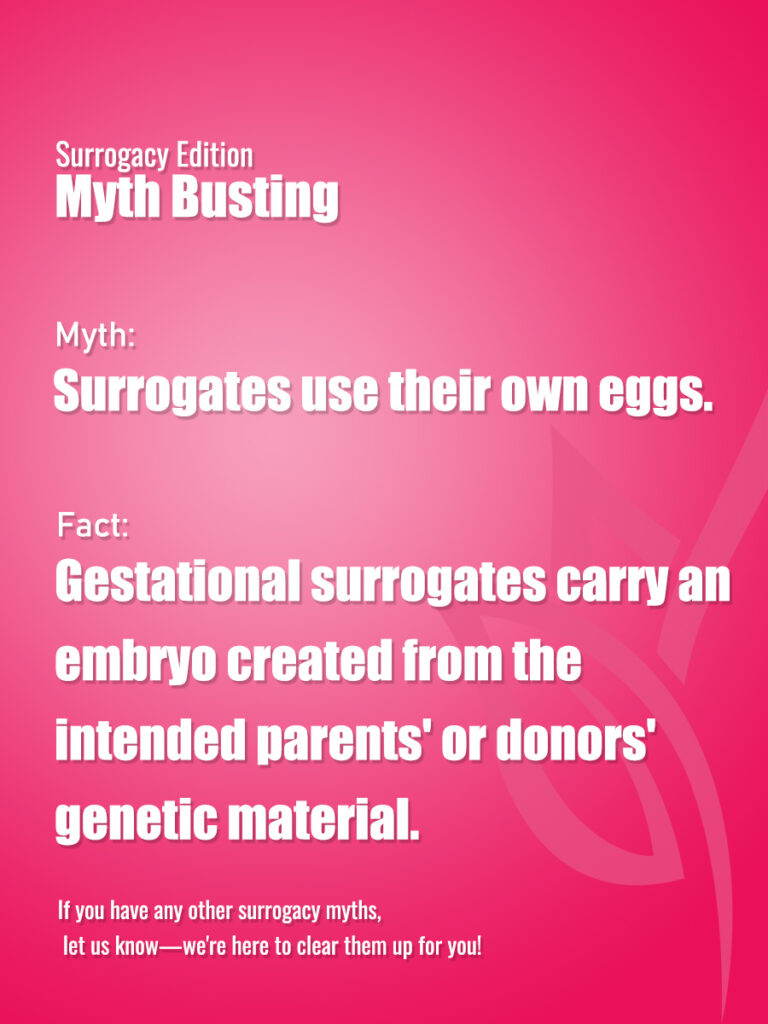
❌ Myth 2: Surrogates get attached to the baby.
✅ Fact: Gestational surrogates understand from the start that they are carrying a baby for someone else.
Surrogates are thoroughly screened — emotionally, psychologically, and medically — before being accepted into a program. From the very beginning, they know the baby they’re carrying isn’t theirs. While surrogates often feel care or affection, the experience is more like being a temporary guardian or even an “aunt.” They’re emotionally prepared and supported every step of the way to ensure a healthy and clear journey.
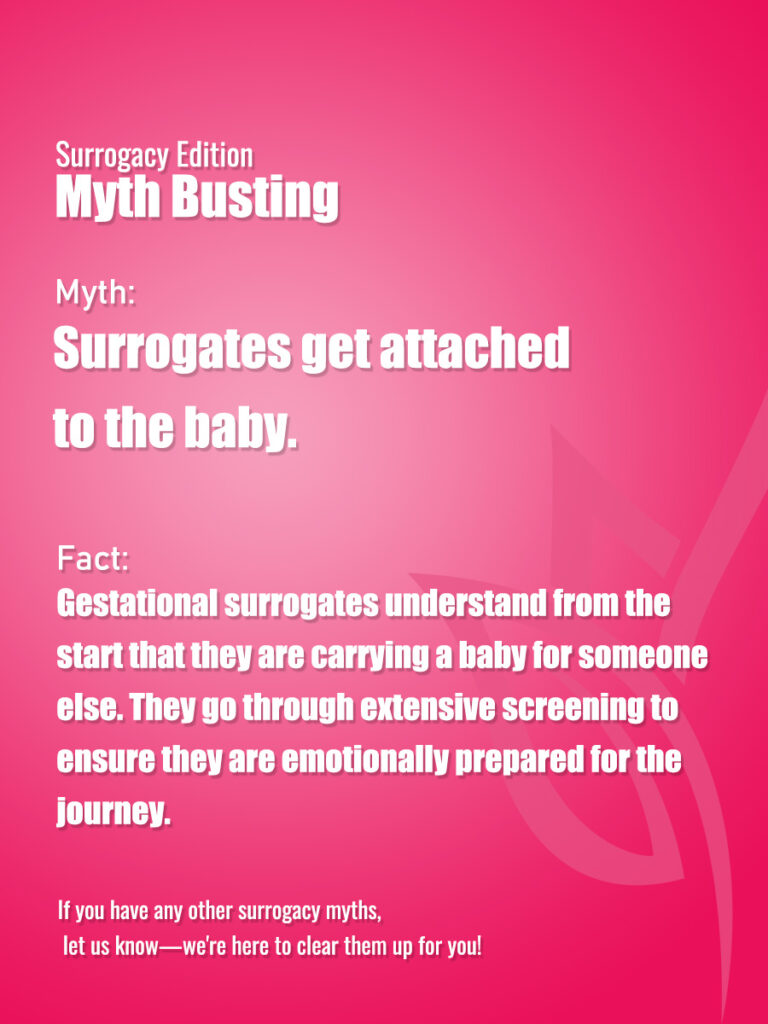
❌ Myth 3: The surrogate has legal rights to the baby.
✅ Fact: Legal contracts signed before pregnancy ensure the intended parents are the legal parents at birth.
Surrogacy is backed by carefully prepared legal agreements. These are created before any embryo transfer happens and clearly define who the parents are (the intended parents), what rights each party holds, and how the process will unfold. As a result, surrogates do not have legal claim to the baby — and custody issues are extremely rare when handled by a reputable agency.
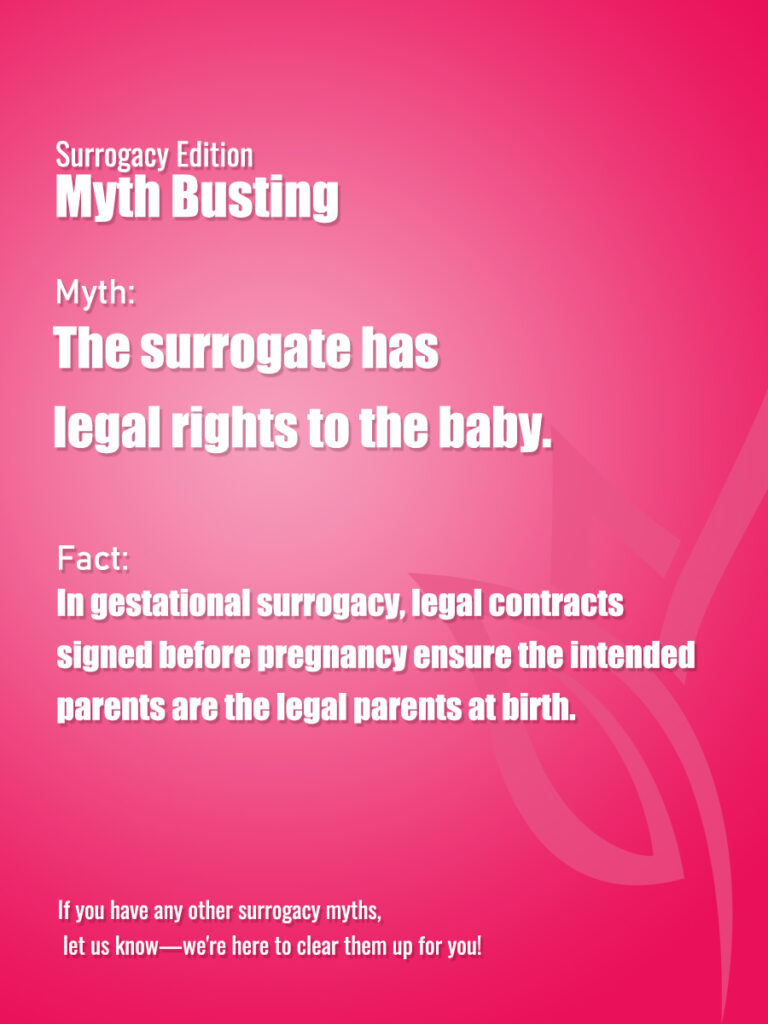
❌ Myth 4: Surrogacy is unethical or exploitative.
✅ Fact: Ethical surrogacy is based on mutual agreement, with fair compensation and full support for the surrogate.
When done through a trusted, licensed agency, surrogacy is a mutually respectful, consent-based arrangement. Surrogates are never pressured. They receive thorough counseling, fair compensation, quality medical care, and ongoing emotional support. True ethical surrogacy empowers both surrogates and intended parents to collaborate in a safe, respectful, and joyful way.
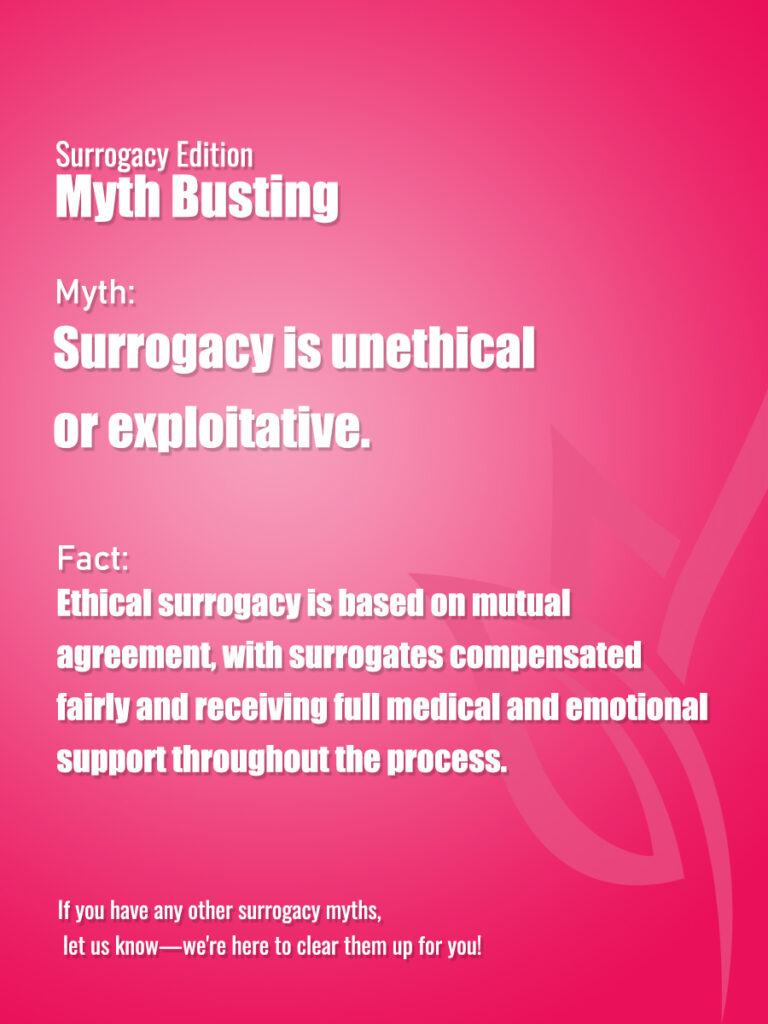
❌ Myth 5: Only women who can’t have children use surrogacy.
✅ Fact: Surrogacy helps a wide range of people — including same-sex couples, cancer survivors, and individuals with medical risks.
Surrogacy is not just a last resort. It’s a family-building choice that serves many types of people — those who’ve had medical conditions like hysterectomies, couples with repeated pregnancy loss, individuals with genetic risks, and same-sex male couples who want biological children. Love makes a family, and surrogacy makes that love possible.
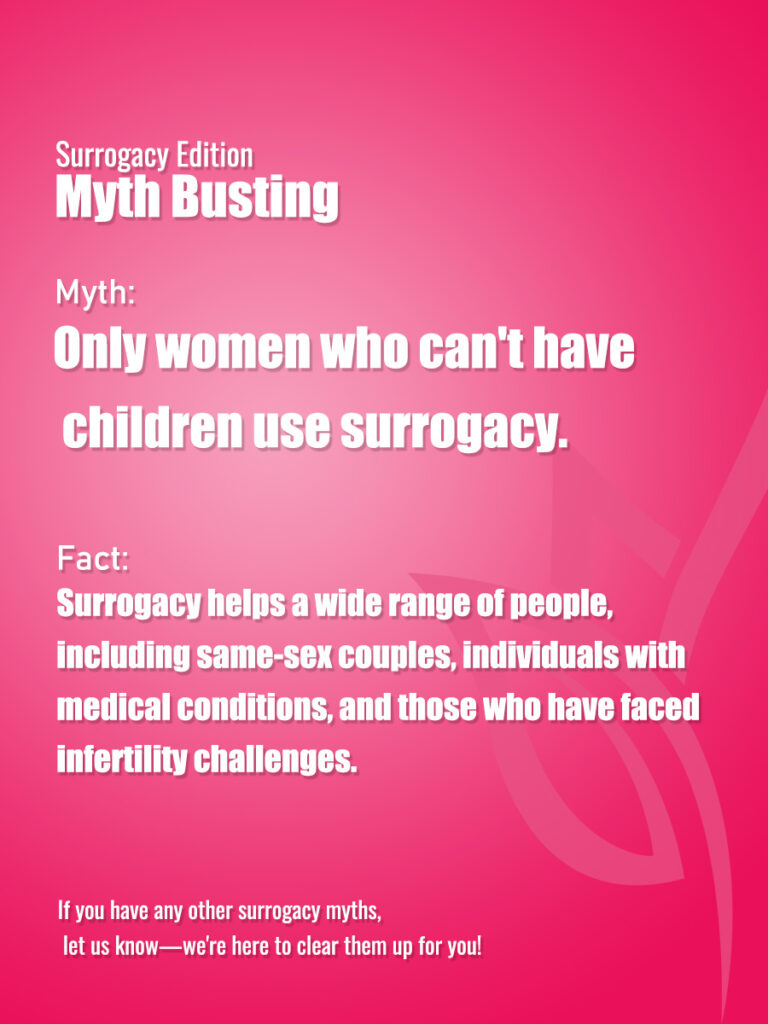
❌ Myth 6: Surrogacy means “giving away” your own child.
✅ Fact: Gestational surrogates have no biological or legal connection to the child.
There is no “giving away” involved. The surrogate does not contribute her own egg, and the baby she carries is not hers in any legal or genetic sense. She is entrusted with a precious gift — and she carries it with care, knowing it belongs to someone else. Surrogacy is not a loss, but a planned act of love from the beginning.
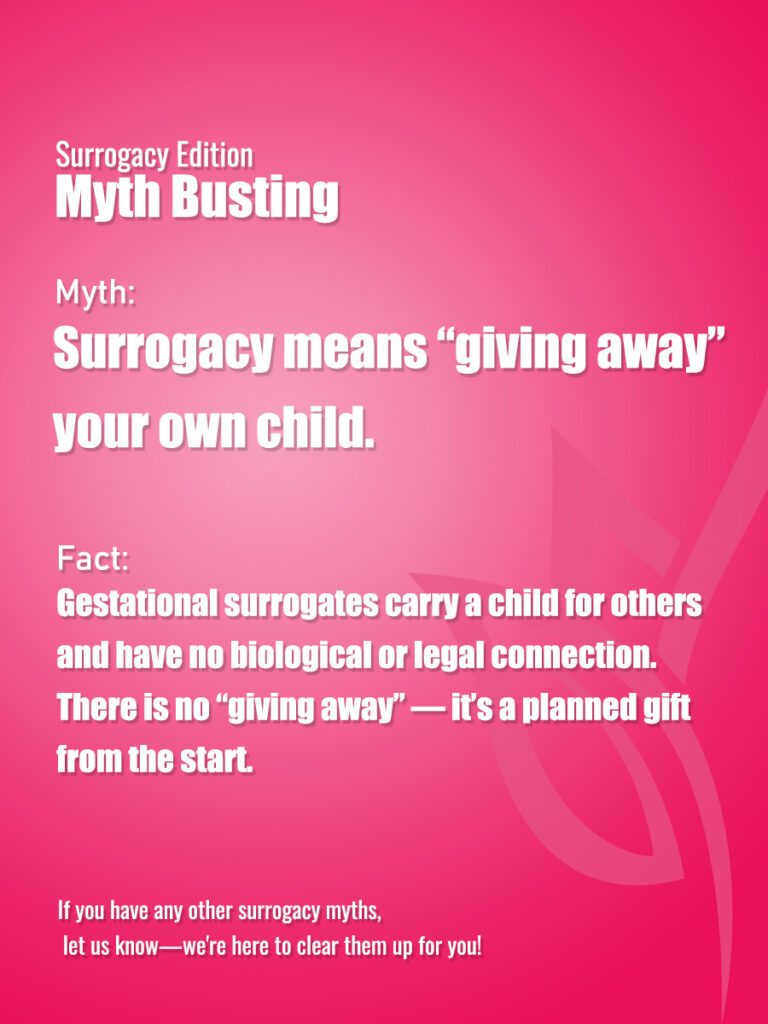
❌ Myth 7: You can become a surrogate at any time.
✅ Fact: Surrogates must meet strict screening criteria to ensure safety and readiness.
Not everyone can become a surrogate — and that’s a good thing. To qualify, a woman must:
- Be between 21–40 years old
- Have had at least one healthy full-term pregnancy
- Have no major complications in prior births
- Live a healthy, stable lifestyle
- Pass psychological and medical screenings
This ensures the safety of both the surrogate and the baby, and protects the intended parents’ trust in the process.
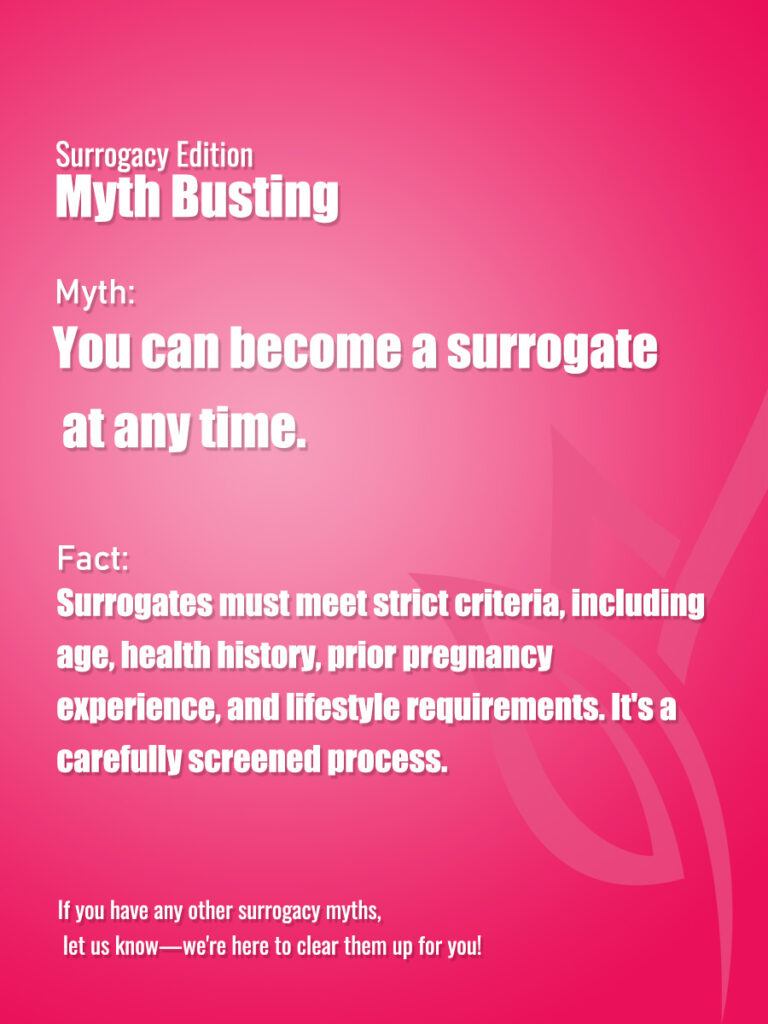
❌ Myth 8: Surrogacy is the same everywhere.
✅ Fact: Surrogacy laws and protections vary by country — and even by U.S. state.
Some countries and U.S. states support and regulate surrogacy, while others prohibit it or lack legal protections. That’s why working with an experienced, ethical agency is so important. Agencies like Surrogate Prime ensure that every match is legally sound, ethically managed, and protected by clear contracts from beginning to end.
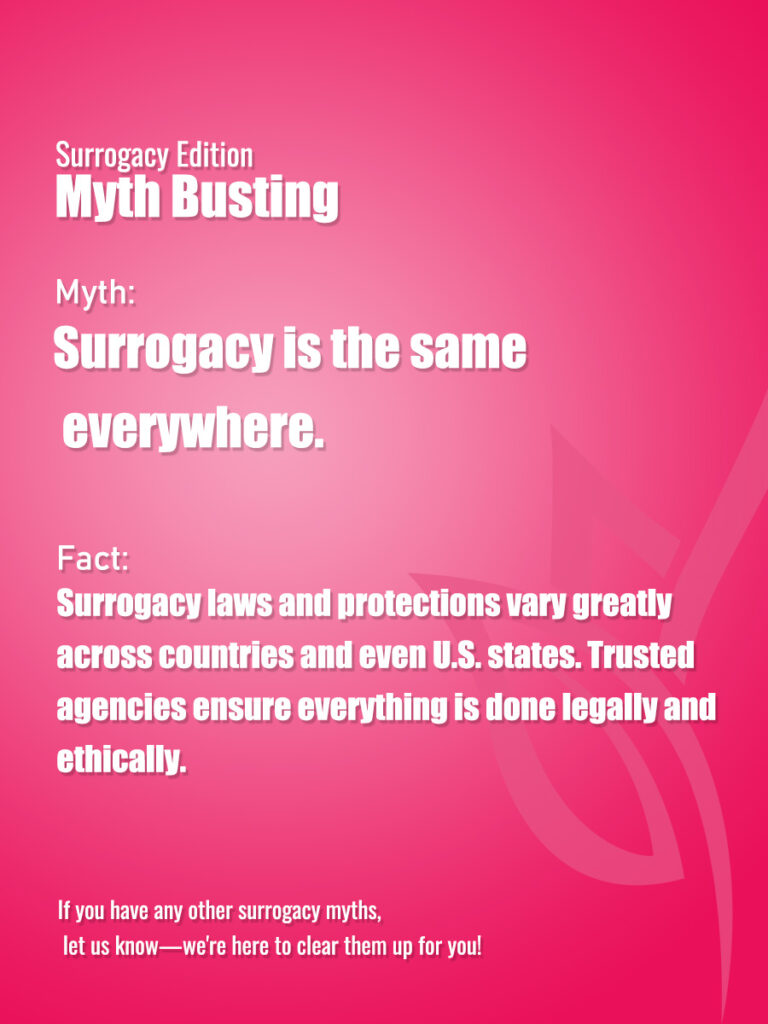
❌ Myth 9: Once the baby is born, the surrogate is left on her own.
✅ Fact: Surrogates receive post-birth support, including counseling, medical follow-up, and agency care.
Good agencies continue to care for their surrogates after delivery. This may include:
- Emotional counseling
- Medical recovery check-ins
- Ongoing communication and appreciation
Surrogacy is not a transaction — it’s a relationship. And that relationship doesn’t end in the delivery room.
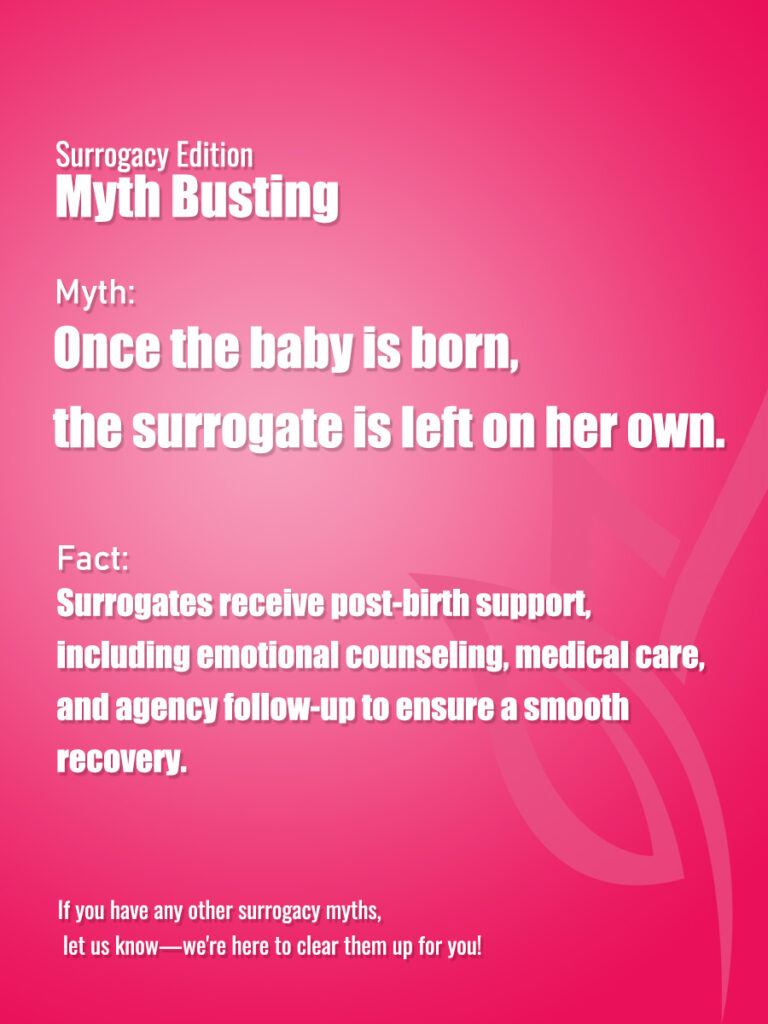
❌ Myth 10: Surrogacy often leads to custody battles.
✅ Fact: With legal agreements in place, disputes are extremely rare.
In well-managed surrogacy arrangements, legal parentage is established before the pregnancy even begins. When everything is handled by a licensed agency and legal professionals, custody disputes are nearly nonexistent. Clear contracts create clear peace of mind.
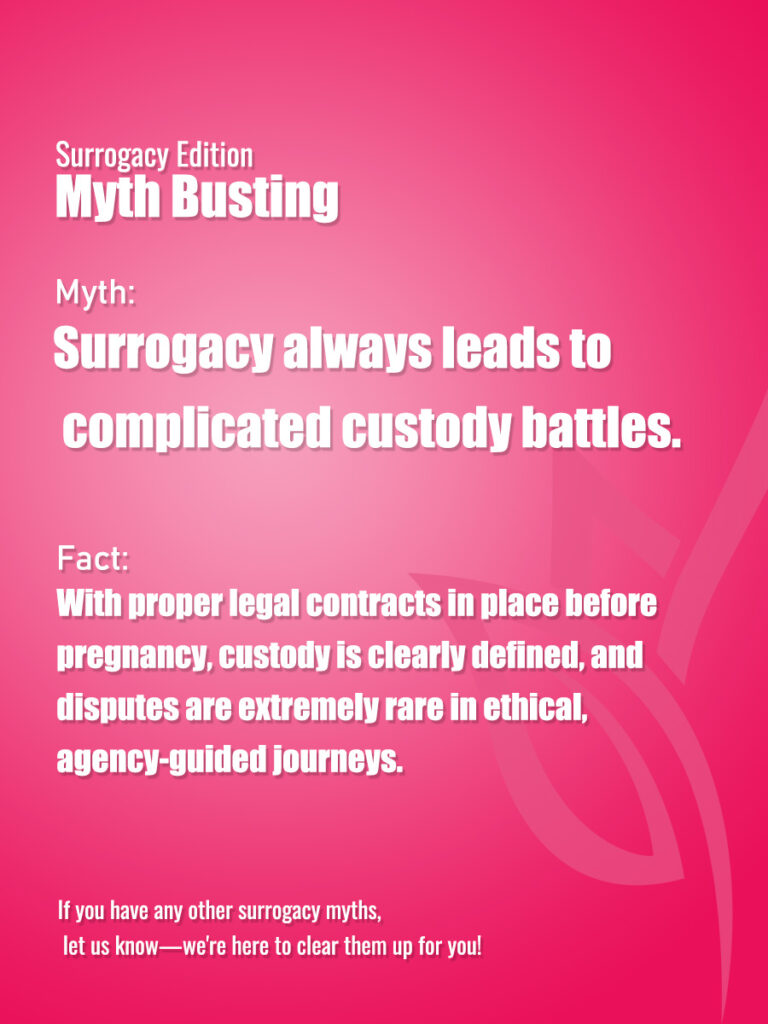
💛 Final Thoughts
Surrogacy is a beautiful, complex, and collaborative journey — but like any meaningful experience, it deserves to be understood clearly. By addressing these common surrogacy myths, we hope to offer clarity, confidence, and compassion to those considering this path.




